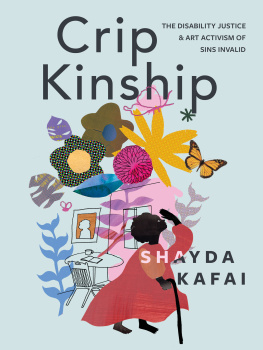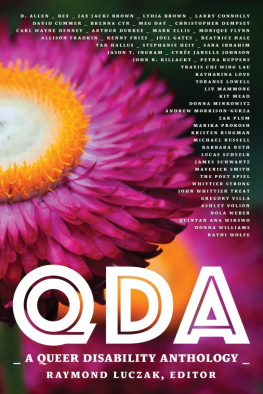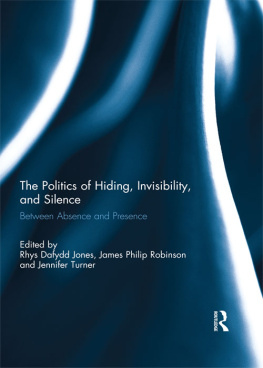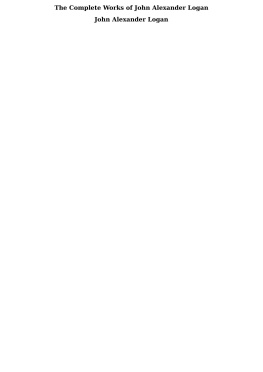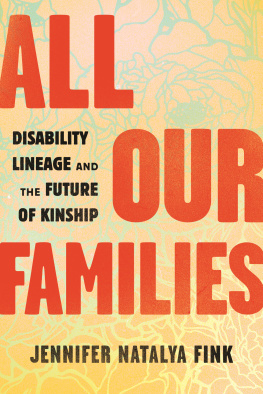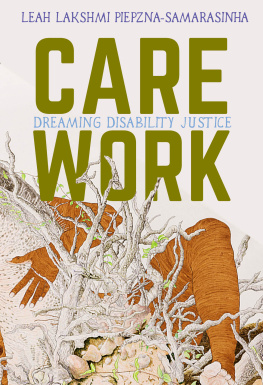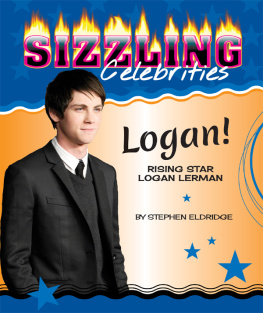J. Logan Smilges - Queer Silence : On Disability and Rhetorical Absence
Here you can read online J. Logan Smilges - Queer Silence : On Disability and Rhetorical Absence full text of the book (entire story) in english for free. Download pdf and epub, get meaning, cover and reviews about this ebook. year: 2022, publisher: University of Minnesota Press, genre: Politics. Description of the work, (preface) as well as reviews are available. Best literature library LitArk.com created for fans of good reading and offers a wide selection of genres:
Romance novel
Science fiction
Adventure
Detective
Science
History
Home and family
Prose
Art
Politics
Computer
Non-fiction
Religion
Business
Children
Humor
Choose a favorite category and find really read worthwhile books. Enjoy immersion in the world of imagination, feel the emotions of the characters or learn something new for yourself, make an fascinating discovery.

- Book:Queer Silence : On Disability and Rhetorical Absence
- Author:
- Publisher:University of Minnesota Press
- Genre:
- Year:2022
- Rating:3 / 5
- Favourites:Add to favourites
- Your mark:
- 60
- 1
- 2
- 3
- 4
- 5
Queer Silence : On Disability and Rhetorical Absence: summary, description and annotation
We offer to read an annotation, description, summary or preface (depends on what the author of the book "Queer Silence : On Disability and Rhetorical Absence" wrote himself). If you haven't found the necessary information about the book — write in the comments, we will try to find it.
Queer Silence : On Disability and Rhetorical Absence — read online for free the complete book (whole text) full work
Below is the text of the book, divided by pages. System saving the place of the last page read, allows you to conveniently read the book "Queer Silence : On Disability and Rhetorical Absence" online for free, without having to search again every time where you left off. Put a bookmark, and you can go to the page where you finished reading at any time.
Font size:
Interval:
Bookmark:
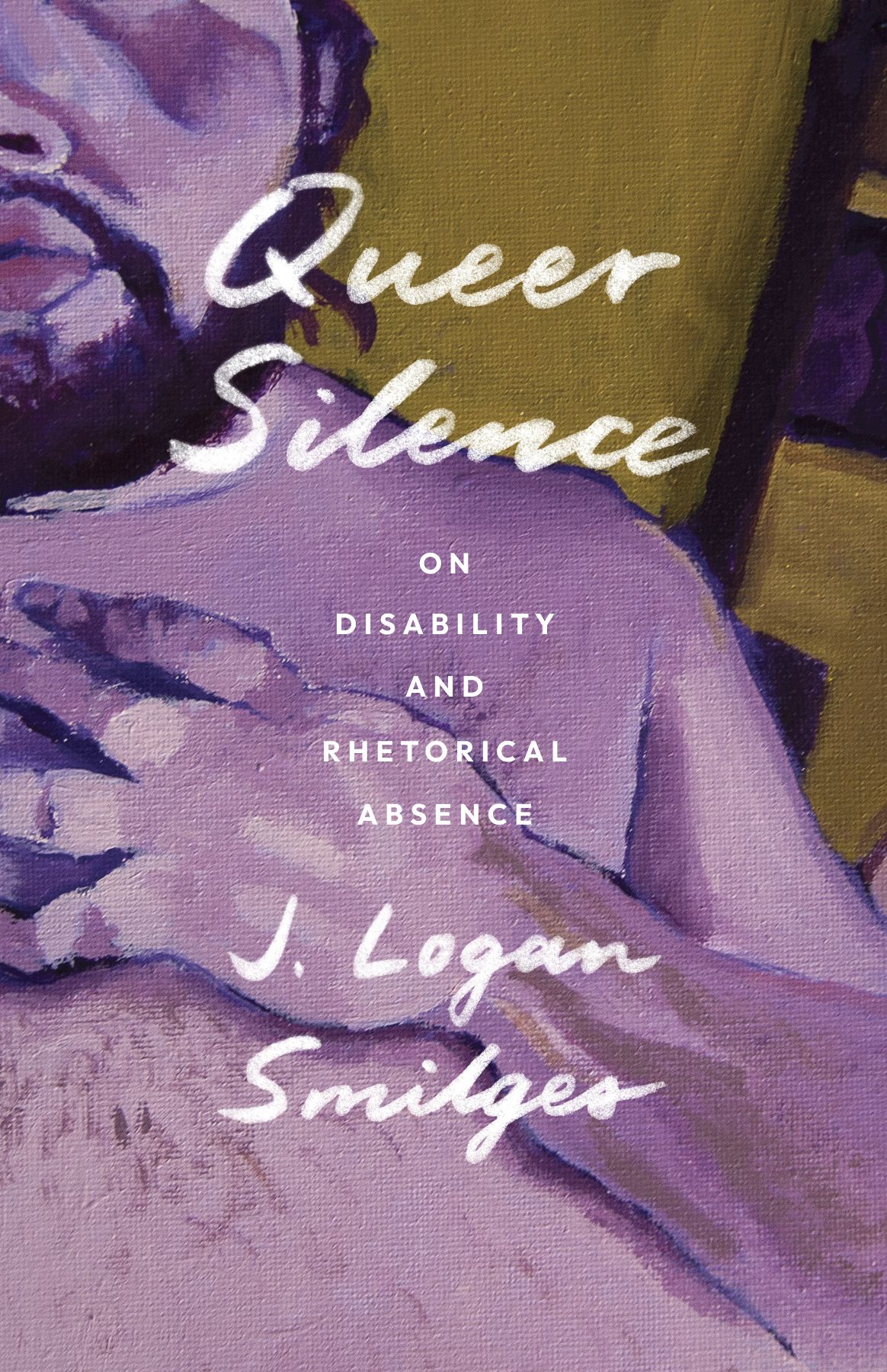
J. Logan Smilges

University of Minnesota Press
Minneapolis
London
Cover design: Amanda Weiss
Cover art: Hayden Stern, this body is a house and i am safe in my home. Courtesy of the artist.
Chapter 3 was previously published as White Squares to Black Boxes: Grindr, Queerness, Rhetorical Silence, Rhetoric Review 38, no. 1 (2019): 7992; reprinted by permission of the publisher, Taylor & Francis Ltd., http://www.tandfonline.com.
Copyright 2022 by the Regents of the University of Minnesota
All rights reserved. No part of this publication may be reproduced, stored in a retrieval system, or transmitted, in any form or by any means, electronic, mechanical, photocopying, recording, or otherwise, without the prior written permission of the publisher.
Published by the University of Minnesota Press
111 Third Avenue South, Suite 290
Minneapolis, MN 554012520
http://www.upress.umn.edu
ISBN 978-1-4529-6806-3 (ebook)
A Cataloging-in-Publication record for this book is available from the Library of Congress.
The University of Minnesota is an equal-opportunity educator and employer.
Im sitting on an old couch. Its soft from wear, and the cushions give out beneath me. I feel smaller and skinnier than I already am. The room is warm and intentionally so. A heater buzzes in the corner. A fern wilts sadly beneath a lamp. Theres a bookcase with one shelf full of books and three shelves filled with baseballs, each encased in glass. Across from me is a portable whiteboard, the kind with wheels that football coaches use to diagram plays in movies. My therapist sits beside it. He has one knee draped over the other, a clipboard in his lap, and a pen tapping against his thigh.
This is my third session with Joe, but hes not really my therapist. Or, rather, hes not a therapist, really. Joe is a conversion therapist hired by my parents to make their child less gay. Preferably straight, otherwise committed to celibacy. The first session had been a diagnostic meeting. I remember spending the last thirty minutes alone in the waiting room while Joe discussed my prognosis with my parents. We all left in good spirits. The second session was just between Joe and me, but it was largely a continuation of the first, albeit with more graphic questions. How often do you lust over men, John? And how often do these lustful fantasies lead to masturbation? Approximately how many of your homoerotic masturbatory sessions lead to orgasm? I answered each question in earnest. I was in fact quite committed to getting better, straighter.
This third session is supposed to be when the therapy starts. I ssit in the sunken couch, and Joe stares at me. Im crying, which is predictable. Im a sad, anxious, feminine boy with undiagnosed complex posttraumatic stress disorder, obsessive-compulsive disorder, and autism; we are a species who cry. At sixteen, I am scared and ashamed. Kids at school call me fag; Joe says its same-sex attraction. The former bites worse than the latter.
Same-sex attraction is reversible, Joe tells me, and I believe him. If you want to be good, if you want to follow Gods law, if you really want it, you can change.
But I continue to cry because even though I want to be good, even though I want to change, Im not good enough, and Im not changing at all. Earlier just that day, I lusted over the boy next to me in Algebra II. At least, I think I lusted. Im not really sure. I didnt have a masturbatory session, so does it still count as lust? Probably. Still crying.
Joe pats my knee and then stands to use the whiteboard. He writes DAD and JOHN in bold letters. Do you love your dad? he asks me.
Well, yeah, of course, I respond, sniffling.
Do you want to be like him when you get older?
I dont answer right away. My dad is mean, violent. A bully. Maybe, like, some parts of him.
Why only some parts?
I dont know.
Your dad is a man, isnt he? Joe frowns.
Yeah. I nod.
And you want to be a man, dont you?
I nod again, even though now that Im thinking about it, Im unsure. Something about Joes insinuation that I am not yet a man makes me excited, and I feel guilty immediately.
So if you want to be a man, why wouldnt you want to be like your dad?
I dunno. Were just different, thats all.
And isnt that difference why youre here?
I say nothing.
Look, John. Joe sits back down. Youre struggling right now because youre confused about who you are. Youre a man in the making. You hear me? Youre going to be a man someday. Once you believe that, the rest of this stuffhe opens his arms widely, gesturing to the extent of my homoerotic afflictionwill figure itself out. If you spend all your time worrying about how you feel and who you want, you will never be happy. You will be alone, just wandering through life. The gay lifestyle is like that, John. It is lonely and sick. Its full of men who dont know who they are, men who never had anyone tell them, Youre a man! Start acting like one! Joe leans forward and puts his hand on my knee. My pulse quickens, and my groin aches. Who are you, John?
I dont know what to say. I didnt feel any of the things I was supposed to feel. I didnt like girls. The thought of being a man unnerved me. I couldnt even imagine having sex with a girl as a man. I place my hand lightly on top of Joes, thinking its what he wanted. I tremble.
Joe stands and pushes me back against the couch, leaving a finger in the center of my chest. Who are you? His finger presses harder into me.
I dont know. And I dont. I cross my knees to cover the tent growing through my shorts.
Joe grabs both my shoulders. Youre a man, John. Say it.
Im a man.
Youre a man.
Im a man.
Youre a man.
The day on which this scene occurred, some afternoon in June 2010, was the day I like to believe that I started writing this book. Following that session with Joe, I continued in conversion therapy for another eighteen months and wouldnt come out as gay or trans for another four and five years, respectively. I wouldnt receive any of my diagnoses for another six years (not that diagnoses are necessary for a disability identity). And I wouldnt physically write the first sentence of this project for another ten years. But I like to believe I started writing that day when I was sixteen because it was then, in a humid room on a shabby couch, that I realized the power of silence. It was then that I learned that absence could be generative, that what remains undone, unseen, unheard, and untouched could be not only transformative but world-building. And more than that, I learned that my trans, (neuro)queer bodymind held the capacity to wield these world-building absences strategically, in ways that helped me to survive in spite of the conditions of my childhood, which were bent on moralizing and subsequently pathologizing how I moved, spoke, longed, lusted, and loved. As I argue here and throughout the following pages, what occurred that afternoon was not merely Joes attempt to police me into a docile state of ashamed submission but also my resistance to his attempt, a resistance born and bred by a queer silence.
In this book, I propose queer silence to name both the surprising potentialities of silence to generate meaning from absence and the ways people on the margins of society tap into these potentialities in order to build community, navigate hostile spaces, and resist forms of institutional and state-sponsored violence. This definition is indebted to, even as it departs from, existing work on
Next pageFont size:
Interval:
Bookmark:
Similar books «Queer Silence : On Disability and Rhetorical Absence»
Look at similar books to Queer Silence : On Disability and Rhetorical Absence. We have selected literature similar in name and meaning in the hope of providing readers with more options to find new, interesting, not yet read works.
Discussion, reviews of the book Queer Silence : On Disability and Rhetorical Absence and just readers' own opinions. Leave your comments, write what you think about the work, its meaning or the main characters. Specify what exactly you liked and what you didn't like, and why you think so.



